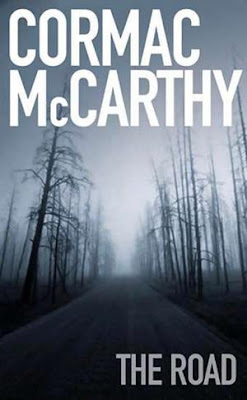
I haven't read a book in two months. I used to read one per week a few years ago. I can't concentrate, I get sleepy in the bus, I don't have time because of my stupid job, my eyes are tired, an excuse is an excuse is an excuse. I haven't stopped buying them though; I have this uncontrollable urge to get new books all the time, even when I know I’m not going to read them. It’s more about owning them, making them mine and knowing that they’ll be waiting for me in my bookshelf whenever I’m ready for them; there’s something very soothing and reassuring about that feeling. I also love the book as an object itself, regardless of what’s inside. I love its smell and texture, how heavy it feels in my hands. I began to read four of all the novels I bought these last two months, but I couldn’t fall in love with any of them right from the start, in those first pages where you get the feeling that whatever you are reading is about to take you to another dimension, away from the noise of the people in the bus, the walls of your room, the walls of your world.
Last book I completely fell in love with was Cormac McCarthy’s The Road. That’s the one I read two months ago and now I’m thinking that there might be a reason why I haven’t been able to continue with my regular reading habits after it. The Road has a subtle yet strong aftertaste; its mood lingers for quite a while once you finished it, making it very difficult to move on to the next fictional universe to settle yourself in. In a post-apocalyptic world, a Man and a Boy -with capital letters because they are the humanity in its entirety-, father and son, try to survive. That’s all they do throughout the story: they walk along the empty road trying to reach the sea, putting up with freezing temperatures, trying to find food where there is none left, escaping from the frightening bad guys and comforting each other in the middle of the cruel, inhuman reality that surrounds them. McCarthy tells all of this in a very matter-of-fact, almost detached writing style, and manages to makes us feel the desperation of the characters in little gestures, in mundane, short dialogues that remind of the ones Vladimir and Estragon have in Waiting for Godot, except here it is clear from the very beginning that there is no Godot to wait for. McCarthy describes that dystopia without a fancy reassuring science-fiction genre-like explanation as to how the world ended that way; he does it in whispers, making the bleakness that much more unbearable, precisely because of the acceptance to it, the submission to it. There’s no solution in the horizon. It feels natural then that the dialogues have no quotation marks or that there are very long sentences without commas: they seem like a useless extra effort the narrator (or the characters) can’t afford, a luxury not to be taken into account in such hard conditions. And that’s why the truly alluring aspect of McCarthy’s narrative is that every now and then, in the middle of a description, a dialogue or a character’s train of thought, he'll produce a phrase that is sheer poetic beauty, and he does so in a very understated way, as if he didn't want to make a big deal out of it. Those moments are long-lasting because they are rare; because, like the food or shelter the Man and the Boy can eventually find, they show that, in spite of the ashes and dirt all around, the beauty that is left in the world will still get you and move you. The Road is a hopeful novel in the cruelest way possible.
And since the last paragraph of the book is painfully, breathtakingly beautiful, it is only logical that I haven’t been able to get away from it and go to a new created world where I could settle for a while. I’m still quite comfortable here:
"Once there were brook trout in the streams in the mountains. You could see them standing in the amber current, where the white edges of their fins wimpled softly in the flow. They smelled of moss in your hand. Polished and muscular and torsional. On their backs were vermiculate patterns that were maps of the world in its becoming. Maps and mazes. Of a thing which could not be put back. Not be made right again. In the deep glens where they lived, all things were older than man, and they hummed of mystery."

Viggo Mortensen is The Man is in the upcoming movie. Best casting decision ever, basically.
No hay comentarios.:
Publicar un comentario